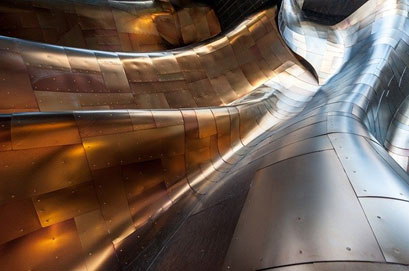
The latter is regard as high-end for a number of reasons apart from the above-mentioned properties. Most of the metals that belong to that class are quite elusive or hard to come by. Their ores are either entrenched deep into the earth or simply rare. Furthermore, the industries that utilize them also belong to a sophisticated bracket, including electronics, telecommunication, and aerospace.
Of all the non-ferrous metals, copper is arguably the most influential. There’s gold and silver that everyone knows about, but when it comes to usability, they don’t come close to copper. The fact that this metal has been around for longer than all the timelines of all other metals combined is a proof of that. Man has used copper for over ten thousand years and its reign is far from over. It’s not difficult to understand why copper is still extensively used despite the emergence of numerous other non-ferrous metals. It has to do with its amazing properties.
Properties of Copper
Our dependence on copper for many of our daily necessities comes from its many properties, which allow it to be turned into materials that are valuable in manufacturing basic commodities and utilities. There are many other metals that have similar properties but they are either not as stable or far less abundant. Let’s take a look at some of the properties that make copper a great metal.
-
Malleability
– Copper can be hammered or rolled into thin sheets or plates without breaking. In fact, there’s a vast range of thicknesses copper can be manufactured into that distributors have made an entire copper sheet thickness chart. Each option can be used for highly specific functions from machine plating to surface embellishment.
-
Ductility
– Copper can be drawn into small wires as well. Most of the electrical cables used in buildings have a copper core. Unlike other metals that become breakable in strips, copper remains hard even when it’s drawn into strands of very small diameters.
-
Corrosion Resistance
– Many artifacts that date back several thousands of years are made of copper, which gives us a clue how long this metal can last. Copper, surely, corrodes just like any other metal. It’s just that the substances that can corrode it aren’t as common as those that corrode other metals.
-
Electrical Conductivity
– It’s not just copper’s ductility that makes it a favorite material for making wire cores. Copper is also known to have superior electrical conductivity. It’s the second most highly conductive metal on the planet, next to silver.
-
High Heat Capacity
– Copper can withstand very high temperatures, including heat produced by high voltages, which is also a reason why it’s the ideal material for making electrical wires. While silver has a higher electrical conductivity, it heats up very fast, causing fire hazards.
-
Antimicrobial Property
– Most non-ferrous metals have the ability to release ions that damage certain proteins in microbes, killing them in the process. Copper, being the king of the non-ferrous, can decimate a great deal of bacteria in a short span of time, which is why it is ideal for making tubes and containers for water distribution and food processing.
Copper Sheet Metal Applications
Copper can be manufactured into different forms but it’s most popular in sheet form. After all, there are tons of applications that require copper sheets. Regardless of the copper sheet thickness, there will always be a use for it. This metal product is so popular you have trouble identifying where to buy copper sheets whenever you find the need. Here are some of applications of copper sheet metal.
-
Welding Fixtures
– Before welding product parts, their geometry must be secured using welding fixtures to ensure the quality of the final product. Copper alloys are ideal for such application. In case you are building your own welding setup and asking “how thick should my copper sheet be?” there are guides online that you can follow.
-
Ground Straps
– Any system or machine that runs on electricity must have a ground strap to protect essential components and people from electrostatic discharge (ESD).
-
Plumbing Fitting
– Copper, being resistant to corrosion, is an ideal material for flashing. It’s even perfect for roofing but, since copper is expensive, many people don’t find it practical.
-
Power Transmission
– Most sprockets, sheaves, belt pulleys, and bushings used in power transmission systems are made of durable and wear-resistant metals. Many alloys of copper fit the criteria.
-
Heat Exchanger
– The majority of components of heat exchangers are made of copper or its alloys, thanks to copper’s high heat capacity.
If you are planning to use metal sheet or plate in your project, copper sheet metal must be first on your list of options. Of course, it wouldn’t hurt if you get expert advice from a world-class copper sheet supplier like Rotax Metals to know which metal is most suitable for your project or whether or not the standard copper sheet thickness would suffice. Moreover, you can easily get lost in the plethora of choices available so it pays to have a detailed discussion with the supplier.
Sources:
https://www.sseb.eu/en/products/clamping-fixtures/complex-welding-fixture/

